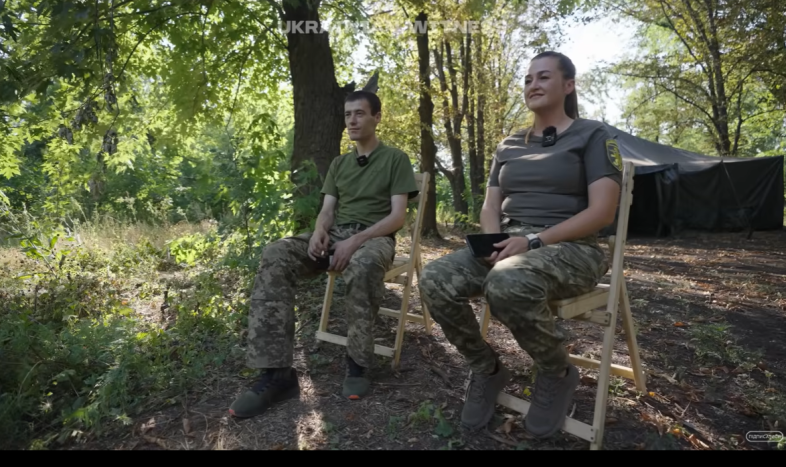The Ukrainian Witness project, our dedicated partner, recently conducted an eye-opening series of interviews with former prisoners who have now become soldiers in the Ukrainian army. These courageous individuals shared their remarkable journeys, from their days in civilian life through imprisonment to their rigorous military training and current roles in the army. The team spoke with one woman and three men, known here only by their combat names, to protect their identities.
In stark contrast to Russia, the Ukrainian army maintains a strict policy: individuals convicted of premeditated murder or rape are not allowed to enlist. This ensures that those who serve are committed to defending their country with integrity and honour.
– What motivated you to join the army, and how did it come about?
“As for me, I wanted to join the army even before my conviction, but a case was already against me, making it impossible,” Sparta explains. “I was sentenced to three years for fraud, and by the time the new law allowing me to enlist was passed, I had already served a year.”
Nimyi, or “The Mute” in Ukrainian, shares, “I’m 46 and had a nine-year sentence for drug trafficking. With seven years left, I had nothing to lose. It’s better to face danger here; at least it’s more interesting.”
Hacker adds, “I first went to prison at 16 for shoplifting. My combat name reflects my skill in hacking Russian gadgets and unlocking their phones.”
“My name is Iryna. I was convicted of an economic crime in 2010, and the legal process dragged on for 13 years. By 2023, I was sentenced and spent a year and a half in prison, with five years still to serve. When the new law was introduced, allowing prisoners to join the army, I jumped at the chance. I have a daughter and wanted to clear my record while contributing to my country. The prison authorities announced that those interested could apply for conditional release to enlist. We submitted our applications, underwent medical and psychological evaluations, and then our files were reviewed by a local court. Thankfully, the court approved our conditional release, allowing us to join the army.”

– Is it possible for you to resign if you get injured, for instance?
“I’m not entirely sure,” Iryna responds. “I know someone who got injured and is currently in the hospital with 30 days of leave. There are several valid reasons for resignation, like health issues or pregnancy for women. However, you would still need to go through a medical commission to process that.”
– In that case, are you considered free, or do you have to go back to prison?
“No, we are free. The prison time is over, and our criminal records are cleared. There’s no going back,” Iryna says.
– What about salary and vacations?
“We don’t get annual leave, but otherwise, it’s the same as for everyone else,” Sparta explains.
– In Russia, the Wagner units recruited prisoners who served as cannon fodder for the Russian army. Do you feel like a ‘Ukrainian Wagner’?
“It would be more accurate to ask if we feel like cannon fodder. Absolutely not!” Sparta laughs. “I haven’t looked into Wagner much, but from what I’ve read online, their discipline is quite specific—they use prisoners as cannon fodder and have significant drug problems. I assure you, that’s not the case here.”
– How are you treated in the army?
“Very well,” Iryna replies. “Even on our way to the front lines, we stopped at a store for supplies. We instinctively followed our commanders everywhere, like geese, until they told us we were free to go on our own. It felt strange at first, but now we’re accustomed to our newfound freedom. We can shop during leave and do everything we couldn’t do in prison.”

– Do former prisoners retain their prison habits?
“It varies,” Hacker explains. “Some come from maximum-security prisons, while others are from general-regime facilities, and their experiences and customs differ widely. It’s tough to shed all those habits overnight. During training, we kept some routines and respected certain hierarchies, but once we hit the front lines, those things faded away.”
“As for me, no. The past is behind me. When I left prison, the person accompanying us said, ‘Forget all that. You’re closing one chapter and starting a new life.’ It’s over,” Nimyi adds.
According to the General Staff of the Ukrainian Army, over 5,000 former convicts have voluntarily joined the army since the law was enacted by parliament in May 2024. Currently, former convicts are only enlisted in assault units. To enlist, they must be in good physical health, pass a psychological exam, and be under 57 years old, ensuring they can serve for at least three years before turning 60, at which point they are eligible for release.

